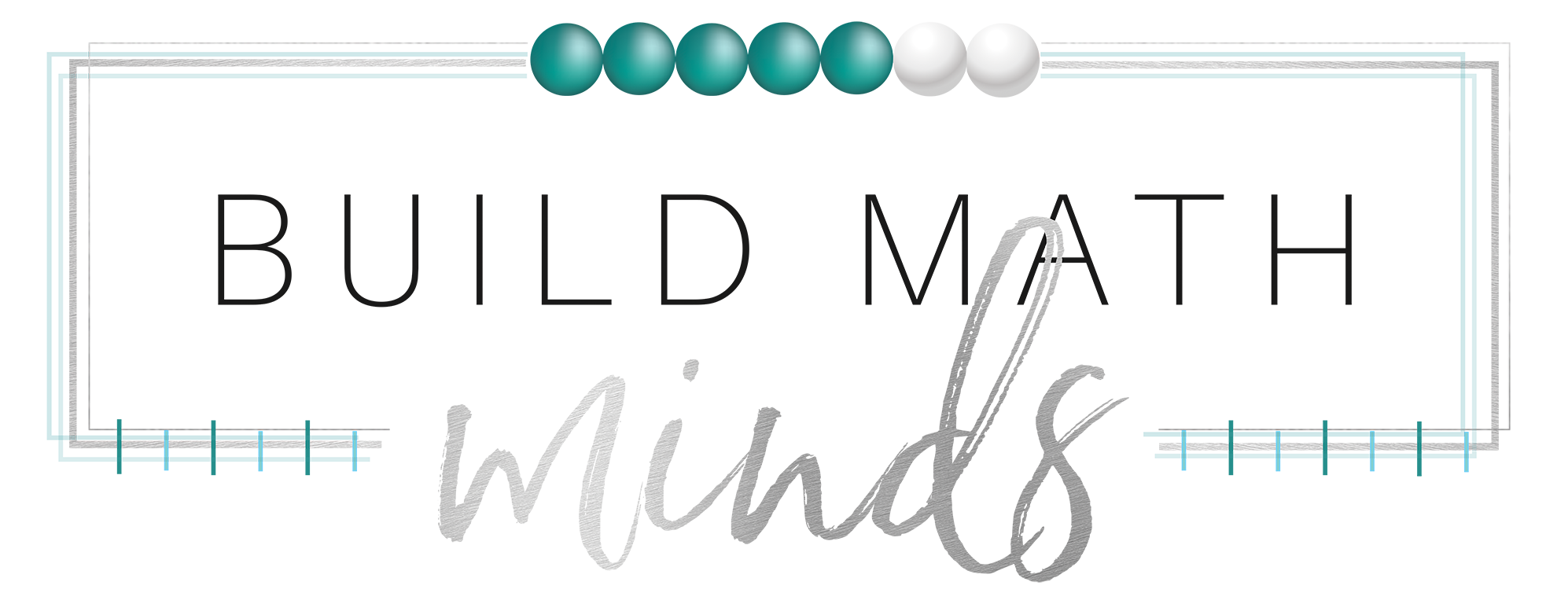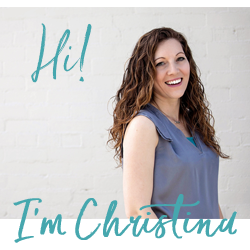Do you ever wonder how much time you should spend on in-depth rich math tasks versus how much time you spend on routine practice math problems?
Well, I’m Christina Tondevold and I hope you’ll stick around, because today, we’re going to talk about Finding the Balance Between Rich Math Tasks and Routine Math Tasks in our quest to build our math minds so we can build the math minds of our students.
Watch the video or read the transcript below:
When I first started trying to change my teaching and trying to implement more of a problem-based lesson in my classroom, it did not go well. I struggled. Let’s just be real here. I decided I was going to try just like one day a week, on Fridays. On Friday it was going to be a big, rich math task that I was going to give my kids.
Well, in theory, that sounds wonderful, but on Friday, I would give the kids the problem and say go for it, like, see what you can do on this problem. What can you come up with? Solve this any way that you can. And they would just stare at me like what does she want us to do? Like, they had no idea where to even start.
So it was this whole process of how to implement these different types of tasks when I had been the teacher that was very much here’s the lesson, here’s the steps I need you to learn and remember and then here’s a bunch of practice problems to have you practice those steps and rules and procedures with. Then when I tried to implement these rich math tasks, the kids were like, you’re not telling us how to do it, and so it was just a big struggle.
Now, everybody is going to have a different way that you implement this, a different style of doing more of these rich math tasks, but to help you along your journey, I wanted to give you a few things to think about.
There is no real formula that I can give you of like 50% of the time you need to be doing this, 10% of the time and then 40% of the time this. It doesn’t work that way, because every group of kids is different and our own teaching styles are different. As you start to implement these ideas into your classroom, I just want you to think about a few things.
What are rich math tasks and routine math tasks?
The first thing is what do I really mean by a rich math task versus a routine math problem? In my eyes, and yours might be a little bit different than this and how you would explain this, but for me, a rich math task was something that required my students to do problem-solving. There was no clear solution path. It required some discussion to talk about how you did it versus how this person did it. There was a lot of modeling that I would expect my students to do, because there wasn’t a clear strategy or solution path that maybe they needed to be drawing pictures or get out some cubes and model things.
So, there was not just this rote procedure, and to me, that’s what a routine math problem is. It’s just typically a bare problem, like 24+37 and you have the kids solve it. And it’s typically something that they have been taught before. They have some rules or procedures that we have shown them, and we’re just having them practice those things, okay? So that’s what I mean about the difference.
All of one isn’t good
Now, in my world, like, I don’t know, hopefully you guys have gotten this from me. I don’t think going all in on one thing is ever good, like, in anything in our lives.
I wanted to use a little example here of like, if we’re talking about exercise and getting fit, okay, there’s people who like to go and run, and that is all that they do. They can go run a marathon and another person who says they are completely fit and they like to go and workout and they lift weights and that’s what they do for their workout, and they see themselves as fit, and that they exercise, right? But they’re different types of exercise.
So the person who runs and runs and runs, I don’t know, are all of their muscles being built? They’re building certain muscles when you’re running, for sure. You’re improving your lungs, like, there’s so many benefits to running. So don’t get me wrong, I’m not knocking running, but there’s also muscles and things that you don’t use when all you ever do is run, right?
Just like the person who lifts weights all the time and they are feeling like they are fit, but they aren’t using the same muscles as a runner, and so all of these things that you could be doing as exercise, one person’s version of exercise and being fit is different than another person’s. But is going all in on one the best for your body?
So I want to pose the same thing to you guys about what we see as doing mathematics. Just like exercising. What does it take to do mathematics? What does it take to be a mathematician? If all we’re ever having kids do is routine math problems, I don’t feel like that is being a fit mathematician. I also don’t feel that being a fit mathematician means that all you ever do are these rich in-depth problem solving type activities. It doesn’t build the same muscles and kids need the different muscles that are built when we’re practicing and doing routine problems. They also need those muscles that get built when they are delving into a problem, and there’s no clear solution path and they need to model it and draw and get ideas from somebody else and really talk about their thinking to get clear on their solution path.
Find your mixture of both
Kids need a mixture of both of these. Now it depends a little bit on us, as a teacher, of what our comfort level is, but it’s also the style of learners. You guys know in your classroom that you have learners who were like me back in the day. Give me 50 problems on a worksheet where I can just go through and do the same procedure over and over and over again and practice the thing that I have been working on. If you gave me one of those in-depth story problems, like, I would shut down. But that’s not good, right? That kind of a learner still needs those experiences.
We have kids who are the opposite way as well. That they thrive on those ones where they can dig deep and they get to talk with somebody and they feel like excited because they still aren’t completely sure if they got the right answer, if they went the best route. And that excites them. For other kids, that’s scary. I was the kid who just wanted that clear solution path and I wanted to know that I was doing the right thing, but if that’s the only thing that I ever did, which it was, it didn’t build my mathematical fitness, right?
I want you to think about how you can create a mixture of both of these. Now notice I did not say a balance. Because to me, that idea of balance is when it is perfectly even and our balance is even, that’s the only way a balance happens, is when things are even.
But maybe you don’t need 50/50, okay? I don’t know what the percentage is for you as an instructor, and for the group of kids that you have. What I want to encourage you to do is to reflect and think about, am I providing opportunities to build all of the students’ mathematical muscles in the type of exercises that I’m providing them throughout the year?
Maybe you look at it through the week. Maybe you look at it through the month. Maybe you look at it through the quarter. I don’t know what works best for you, but I want to encourage you to reflect and think about the type of exercises, mathematical exercises, that you’re giving your mathematicians.
As you work to figure out what your mixture is of these rich mathematical tasks versus routine mathematical tasks, there is no formula, there’s no set percentage. You just have to feel it out and see what works best for you and your kiddos. And just reflect every once in a while, because we want to ensure that kids have all of these different types of exercises to build their mathematical fitness. All right, I hope that this helped build your math mind so you can go build the math minds of your students. Have a great day.
Save This For Later on Pinterest!


 Welcome! I’m a Recovering Traditionalist elementary teacher and now, I help teachers and children learn to love math. Explore how I can help provide you PD at your fingertips! BuildMathMinds.com
Welcome! I’m a Recovering Traditionalist elementary teacher and now, I help teachers and children learn to love math. Explore how I can help provide you PD at your fingertips! BuildMathMinds.com